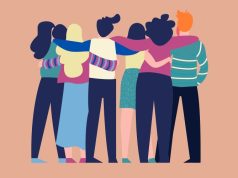Welcome to our blog, where we explore the fundamental concept of civil rights, their historical significance, and their ongoing relevance in contemporary society. Join us as we delve into the history of civil rights movements, examine the core principles and values behind civil rights, and discuss the challenges and triumphs in the pursuit of equality and justice.
Understanding Civil Rights:
1.1 Defining Civil Rights:
Exploring the concept of civil rights and their significance in ensuring equal treatment and protection for all individuals.
Discussing the foundation of civil rights in national and international laws and declarations.
1.2 Historical Context:
Tracing the history of civil rights movements, including pivotal moments such as the American Civil Rights Movement, the fight against apartheid in South Africa, and other global struggles for equality.
Discussing key figures and events that have shaped the course of civil rights history.
1.3 Core Principles:
Examining the core principles that underpin civil rights, including equality, non-discrimination, freedom of expression, and the right to participate in public life.
Discussing the interplay between civil rights and other human rights frameworks.
Struggles for Civil Rights:
2.1 Racial and Ethnic Equality:
Exploring the fight for racial and ethnic equality, including the abolition of slavery, the civil rights movements of the 20th century, and ongoing efforts to combat systemic racism.
Discussing issues such as racial profiling, police brutality, and the importance of dismantling racial disparities.
2.2 Gender and LGBTQ+ Rights:
Examining the struggles for gender equality, including the women’s suffrage movement, reproductive rights, and the fight against gender-based violence.
Discussing the LGBTQ+ rights movement and the ongoing fight for equal rights and protections.
2.3 Disability Rights:
Highlighting the importance of disability rights and accessibility, including the fight for inclusive education, employment opportunities, and the removal of architectural barriers.
Discussing the concept of Universal Design and its impact on promoting equal access for all.
Challenges and Progress:
3.1 Intersectionality:
Exploring the concept of intersectionality and its relevance to civil rights struggles.
Discussing the unique challenges faced by individuals who experience intersecting forms of discrimination based on race, gender, sexuality, disability, and other factors.
3.2 Legal and Policy Frameworks:
Examining the role of legal and policy frameworks in promoting and protecting civil rights.
Discussing landmark court cases, legislation, and international human rights treaties that have advanced civil rights agendas.
3.3 Continuing Disparities:
Addressing the persistent disparities and inequalities that continue to affect marginalized communities.
Discussing the importance of addressing institutional barriers, systemic biases, and socioeconomic factors in achieving true equality.
Activism and Advocacy:
4.1 Grassroots Movements:
Highlighting the power of grassroots movements in driving social change and advancing civil rights.
Discussing the strategies and tactics employed by activists and community organizers to raise awareness, mobilize support, and challenge oppressive systems.
4.2 Allyship and Solidarity:
Addressing the significance of allyship and solidarity in the fight for civil rights.
Discussing the role of individuals and communities in supporting marginalized groups and amplifying their voices.
4.3 Education and Awareness:
Emphasizing the importance of education and awareness in promoting civil rights.
Discussing the role of schools, educational institutions, and media in shaping public perception and fostering inclusivity.
Conclusion:
As we conclude our exploration of civil rights, we recognize the ongoing importance of these principles in creating a just and equitable society. By understanding the historical struggles, acknowledging the challenges that persist, and actively participating in advocacy and allyship, we can contribute to the advancement of civil rights and foster a world where all individuals are treated with dignity, respect, and equality. Join us in future blog posts as we continue to engage with important social issues, celebrate progress, and work towards a more inclusive future.























